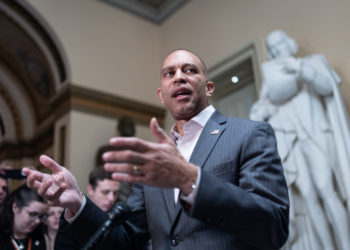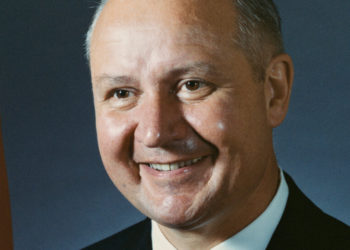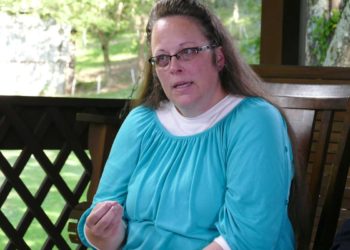A center-left Welsh nationalist candidate defeated the governing Labour Party and Nigel Farage’s right-wing populist Reform U.K. in a Welsh Parliament special election on Thursday that has been closely watched as a potential bellwether of major upheaval in wider elections next year.
Plaid Cymru, a party that supports Welsh independence from Britain, had been vying with Reform U.K. in polls leading up to Thursday’s vote in Caerphilly — for decades a Labour Party stronghold — amid poor approval ratings for both Prime Minister Keir Starmer’s government and its main opposition, the center-right Conservatives.
Its candidate, Lindsay Whittle, was elected with 47 percent of the vote. Reform U.K.’s candidate was second on 36 percent, despite a high-profile campaign joined by Mr. Farage, which he had said could be the start of “spectacular” victories for the party in other parts of Wales. Labour’s candidate placed third, with 11 percent.
The election was seen as the latest bruising test for Mr. Starmer’s Labour government, which has had remarkably low approval ratings for a party that won a landslide victory in July 2024, while Reform U.K. has surged in the polls.
Labour, long the dominant force in Welsh politics, had held the Caerphilly Welsh Parliament seat since its creation in 1999, and has won there in every British general election for more than 100 years, but it faced an uphill battle amid attacks on its local and national record by opposition candidates.
While Reform U.K. has been advancing on the right, the Liberal Democrats and the Green Party have been trying to capitalize on the center and left, and in Wales, Plaid Cymru is presenting itself as a “fresh start.”
In Caerphilly, Plaid Cymru urged voters to back it in order to “stop Reform,” with campaign material that read “Labour can’t win!” and displayed tight pre-election poll results between the two parties.
Wales has historically been a dependable stronghold for Labour, particularly the region that includes Caerphilly, north of Cardiff. The prosperity of towns and villages in the area, known as the South Wales Valleys, was blighted by coal mine closures in the decades following World War II, and the more recent decline of heavy industry. Labour drew support as the party for workers, with backing from large trade unions.
But its local political dominance became a challenge for its candidate, Richard Tunnicliffe, during the Caerphilly election campaign. He was accused of hypocrisy for campaigning to prevent library closures planned by the local Labour-run council after previously agreeing with them.
Opposition parties, however, used the campaign to attack the local and the national governments on a range of issues, particularly the economy and immigration.
Mr. Farage visited Caerphilly twice as the election approached, giving a news conference on Sept. 12 in which he said his party would “throw everything” at the campaign and claimed that a Reform U.K. victory would be a prelude to “something quite spectacular” in the wider Welsh Parliament elections next year.
The party’s support appeared to suffer little from revelations that its former leader in Wales, Nathan Gill, had accepted bribes to make pro-Russian statements in the European Parliament.
Reform U.K. won a special election in northwestern England in May, for a seat in the U.K. Parliament, and made significant gains in that month’s English local elections, which experts said marked the start of a new era of multiparty politics in Britain.
Thursday’s special election was called after Hefin Wyn David, a Labour politician who was first elected to represent Caerphilly in the Welsh Parliament in 2016, died in August.
Known as the Senedd in Welsh, the Welsh Parliament opened in 1999 as part of a program of devolution within the United Kingdom spearheaded by Tony Blair’s Labour government, which also created the Scottish Parliament and the Northern Ireland Assembly.
It operates separately from the Westminster Parliament and can make laws on matters specific to Wales, such as health, education, housing, transport and farming. The special election on Thursday filled only the Caerphilly seat, one of 60 in the Parliament. The Parliament will expand to 96 seats after an election in May next year.
Plaid Cymru’s leader, Rhun ap Iorwerth, hailed the Caerphilly result as a “historic” victory, which he said was the beginning of a political “reset” in Wales that will see the formerly dominant parties of Labour and the Conservatives fade into insignificance.
“It’s happening globally, it’s happening here in Wales, where the old guard is gone,” he said in a statement. Reform U.K. and Plaid Cymru, he said, would offer voters a “choice of two different futures.”
The post U.K. Labour Party Suffers Crushing Defeat in Former Stronghold appeared first on New York Times.




